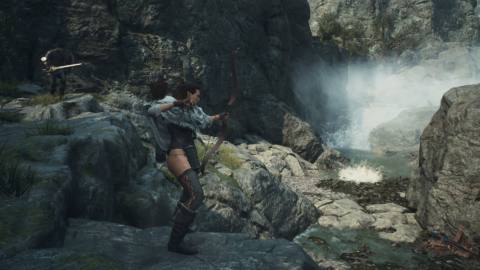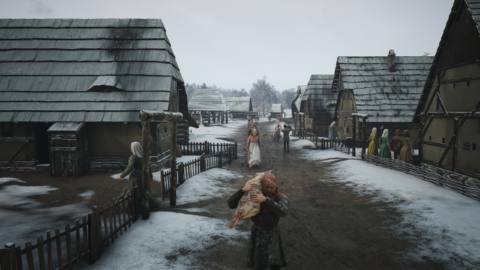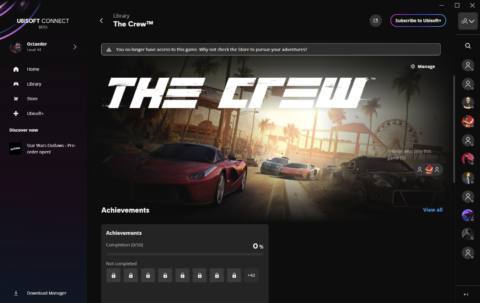Four years to the day before Game Science released action-adventure Black Myth: Wukong, the Chinese studio shot to immediate international attention with the kind of trailer that made a lot of us go: “No way… really?” It looked good. Really good. Lush, strikingly detailed foliage, subtle reflections on the surface of mossy puddles, transformation after transformation showing monkey king Sun Wukong's deep reservoir of tricks and battle techniques. It seemed too ambitious, too strong a first showing from a studio that, up to that point, had primarily worked on mobile games.
It was no coincidence that when Game Science finally let us play Black Myth, we started in that same densely forested level.
“One of the things we value is a promise to our game fans. We tried to keep true to what it looked like in 2020, but did a lot of optimization based on that,” said Game Science in an interview with PC Gamer (the developer I spoke with requested to be credited as a representative of the studio, rather than an individual). And sure enough, the final stage four years later looks remarkably true to the original teaser, proving that that first demo wasn't pulling any sleight of hand.
“Blackwind Mountain was one of the first levels that was completed, and we didn't feel very satisfied with it at the time,” said Game Science, a hint that this early bit of the game may undersell the scope of the adventure that follows.
Longest Journey
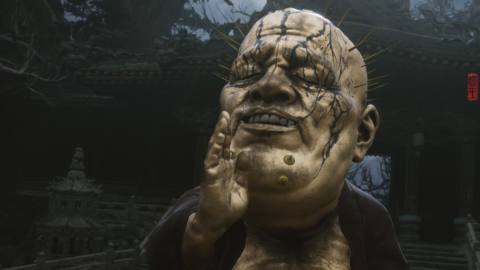
During my interview with GameScience, I attempted to discuss IGN's report on past sexist remarks from some of the studio's founders, but only received a reply of “No comment.” Read more here.
Even as Game Science downplayed the quality of Blackwind Mountain, though, they promised that Black Myth's third level is on another level, with a mammoth explorable space and a multi-phase boss fight befitting a warrior who the Buddha had to bury under a mountain just to stop his rebellion against heaven.
“It took a long time to get this boss right,” Game Science said. “We don't think any game on the market right now has achieved this kind of interaction with the main character. When you fight him you're in this very ornate environment, and this character has a deep, complicated relationship with the boss. They don't want to kill you, because they want to take you in as an apprentice. And there is more than one way to beat him: you can use a different combination of spells, it's very fluid. But out of every boss, only he has the ability to counter each and every spell and ability the player has.”
Black Myth: Wukong has grown in ambition since that 2020 reveal, when only 20 or so people worked on its initial demo. “We needed to hire more people, but at the time there were not a lot of people who were developing PC/console games [in China], so we opted to release the trailer so that people could get a good sense of the quality of the game and attract interest from like-minded folks.”
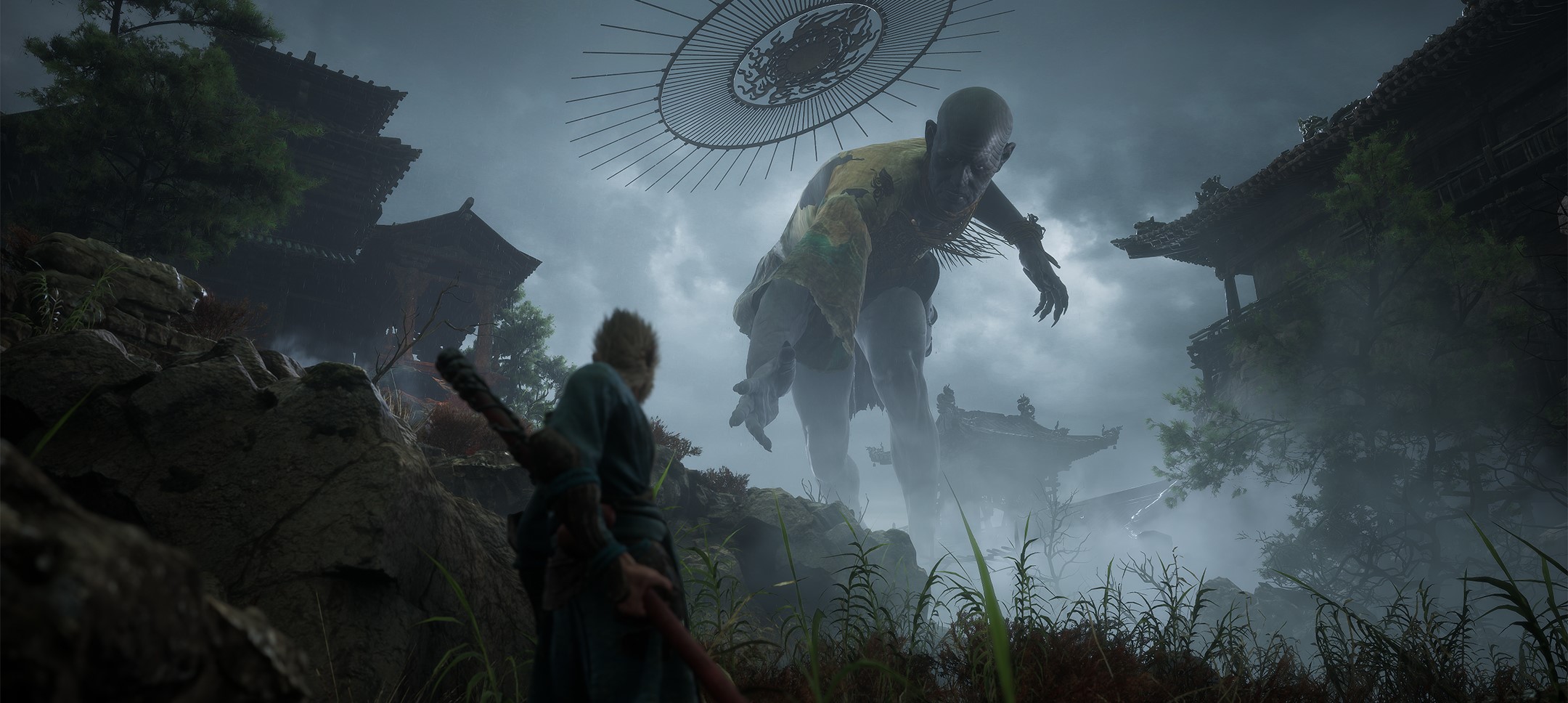
Despite hiring more than 100 developers since then, Game Science said the development has been “fairly smooth sailing.” That wasn't the case for the last big project that Game Science's founders worked on. As Tencent developers in the 2010s they created the MMO Asura, but felt like they were lacking both the experience and technology they needed to make it a hit. They loved the idea of Asura, though. Not the MMO bit, but the fact that it was based on 16th century novel Journey to the West, a fantasy fable that's been retold in countless movie and TV productions in and out of China. Adaptations as varied as Dragon Ball and the post-apocalyptic adventure game Enslaved: Odyssey to the West have proven the story endlessly flexible.
With a decade more experience, Game Science came back to try it again.
Mythmaking
Journey to the West is prime fodder for an action game, if for no other reason than not one person Wukong and his companions meet on their long trek being normal. Sixteenth century road trips must've been exhausting—every passerby has some sort of trick or special ability up their sleeve, which Game Science has tried to channel into its combat design. “Wukong has very fluid ways of moving and a lot of different transformations,” Game Science said. “We hope the audience has space to think through what abilities they should use to conquer each enemy and boss.”
Beyond how it will benefit combat, though, Journey to the West's epic scale—it's more than 2,000 pages, translated to English—gives them an immense collection of adventures to pull from.
“We think that Journey to the West is not simply just about Sun Wukong's journey to the west. Everybody has their own journey, and in Black Myth: Wukong we're trying to complete the stories of a lot of the main characters,” Game Science said.
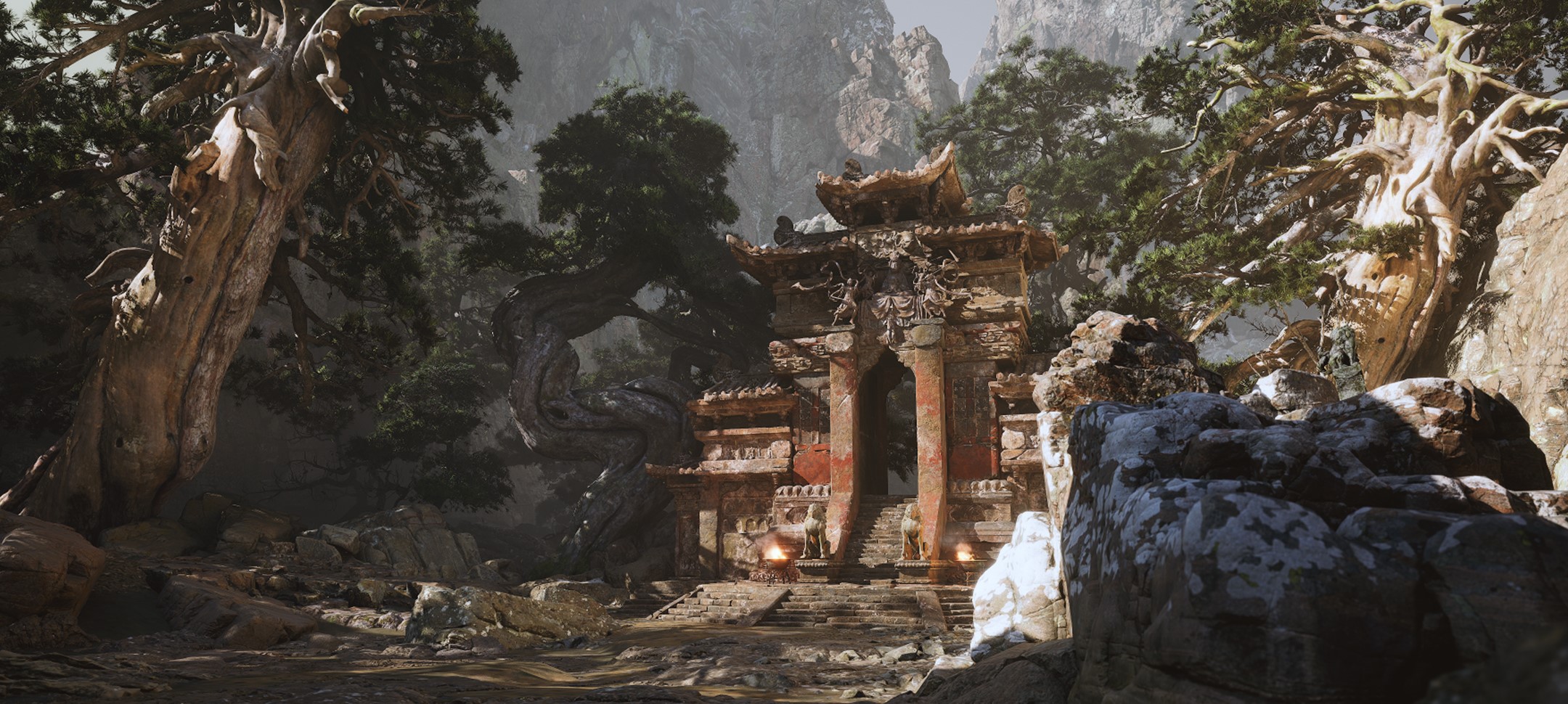
The game takes place after the novel, with Game Science doing its best to balance the story for Chinese audiences who already know the book inside and out, and international players who will be coming to many of its characters for the first time. That's been an ongoing localization challenge, with tweaks to the English localization seemingly still coming in during its last month before release.
“It's a very difficult game to translate. There's a lot of vocabulary that's very specific. We have to translate an Older Chinese that's kind of similar to Old English to the modern Chinese language that we're using, and then from there into English. But in terms of a message to really drive home with the audience, when you peel away the language difference you see that Journey to the West has a spirit about it. Everybody has this faith they hold onto… The team didn't really want to make a game that is just all about beating monsters. We wanted to establish the enemies as very dimensional characters, not just another enemy you have to beat.”


